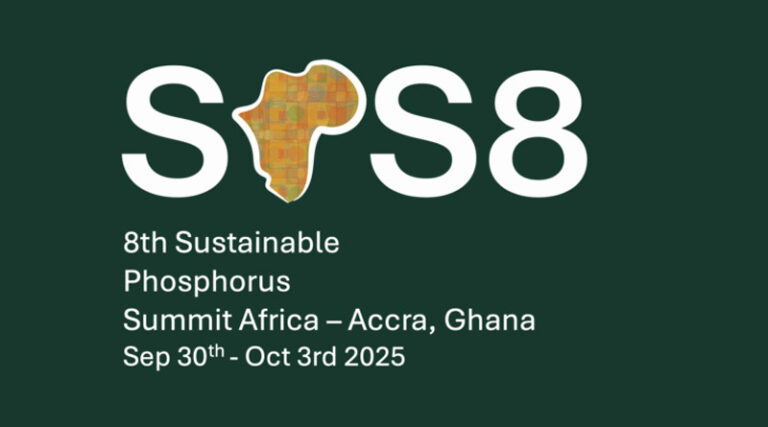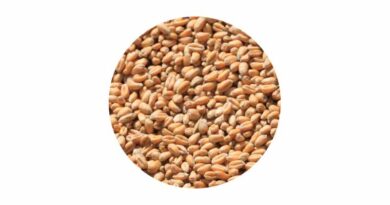
APNI Sponsors Special Session at 8th Global Sustainable Phosphorus Summit (SPS8)
05 September 2025, Africa: For the first time, Africa will host the Sustainable Phosphorus Summit (SPS8)—a landmark moment underscoring the continent’s growing role in shaping global agricultural and environmental policy. Phosphorus (P) is a critical nutrient for food production, yet its management poses significant sustainability challenges worldwide. Africa, home to vast phosphate reserves and a rapidly expanding agricultural sector, is uniquely positioned to lead discussions on innovations associated with P management. By bringing the 8th edition of the summit to Accra, Ghana from September 30th to October 3rd, stakeholders are recognizing Africa’s potential not only as a resource hub but also as a thought leader in forging resilient and sustainable systems that support both continental and global food security.
During SPS8, the African Plant Nutrition Institute (APNI) has organized a special session on Enhancing Global Phosphorus Efficiency Along the Mining-Use-Recovery Pathway. The session, held on Thursday October 2nd (Day 3), will bring together leading multi-disciplinary global experts to foster discussions amongst stakeholders in research, industry, and policy development on state-of-art knowledge in P-value chain innovations to accelerate sustainable P use in global agricultural systems and appraise the interventions to address knowledge and implementation gaps.
Key Facts on Phosphorus and Africa
- The FAO has declared P to be the most agriculturally yield limiting nutrient, and its supply is crucial to food availability.1
- Globally, cereal yields could be 22–55% higher if P limitation were addressed.2
- Achieving SDG Target 2.3 of doubling productivity on smallholder farms requires 39% more P application (125 Mill t) in 2030 compared to 2015.3
- The challenge of increasing food security is greatest in Sub-Saharan Africa, which is further compounded by widespread limited P use.4
- In the face of both extensive soil deficiencies and severely constrained P use, Africa needs large increases in P application to maintain agricultural production in line with population growth and other key socioeconomic factors.
- Balanced application of NPK fertilizer can double the average yields for rain-fed maize and rice yields to 4 t/ha.5
- Phosphorus use in Africa agriculture need to increase by two-fold to be balanced with current N input, but over 11-fold to reach the balanced crop nutrition needed to close attainable yield gaps.6
- The 2024 Nairobi Fertilizer and Soil Health (AFSH) Declaration and Action Plan recognize that optimizing continent-wide P use efficiency requires more site-specific fertilizer recommendations and management practices specifically aligned with 4R (4 Right) Nutrient Stewardship.7
- APNI is leading the development and implementation of 4R science to discover the locally relevant combinations of right source, right rate, right timing, and right placement for African farmers.
Opportunities & Challenges for P in Africa
The continent presents unique prospects for leapfrogging to high-efficiency systems, enabled by cost-effective technological innovations. Increasing P fertilizer use in balanced nutrient formulations is essential for narrowing yield gaps in African crop production systems. Accelerating increased application of P and improving its management to enhance the agronomic, economic and environmental efficiency will require a combination of cost-effective P fertilizer sources, novel and adapted management practices, innovative diagnostic and decision support tools, digital advisory services, public–private partnerships, market development investments and enabling policies.
Also Read: India Slashes GST on Tractors and Agri-Inputs to Boost Farm Economy
📢 If You’re in Agriculture, Make Sure the Right People Hear Your Story.
From product launches to strategic announcements, Global Agriculture offers unmatched visibility across international agri-business markets. Connect with us at pr@global-agriculture.com to explore editorial and advertising opportunities that reach the right audience, worldwide.






